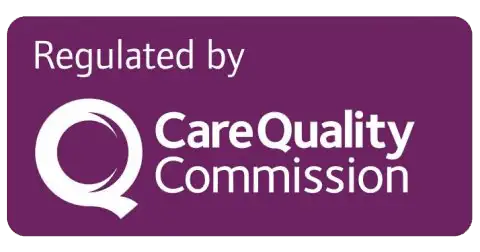Starting on the path to recovery from alcohol addiction is a courageous choice, one that can lead to a healthier and more fulfilling life. In the West Midlands, resources are available to guide you from detox all the way to sustained sobriety through comprehensive rehab programs. While detox is a critical first step in removing alcohol from the body, rehab and aftercare provide the tools and support needed to maintain long-term recovery.

Here is a breakdown of the stages in the journey from detox to rehab:
Step 1: Start With Detox
Detox is the initial phase of recovery, focusing on safely clearing alcohol from the body while managing withdrawal symptoms. For those who have been drinking heavily, withdrawal can involve symptoms ranging from mild, such as anxiety and nausea, to severe, like seizures, making medically supervised detox the safest option. Detox centres in the West Midlands provide 24-hour medical supervision, medication to ease symptoms and immediate support.
What to Expect During Detox:
-
- Initial Assessment: Upon entering detox, a medical team will assess your health and determine a personal detox plan based on your needs.
-
- Symptom Management: Staff will monitor and manage withdrawal symptoms, using medications if needed to make the process as comfortable as possible.
-
- Preparation for Next Steps: Detox programs often offer counselling or guidance on what to expect in rehab, which helps you begin to mentally prepare for ongoing treatment.
Step 2: Transition to Alcohol Rehab
Once detox is complete, transitioning to rehab is the next important phase. Rehab provides a structured, supportive environment for you to start addressing the underlying causes of addiction. Rehab programs often include one-to-one and group therapy, education on addiction and skill-building, to help you cope without alcohol. Rehab centres can offer a variety of inpatient and outpatient options, allowing you to choose the right level of care for your needs.
Key Components of Alcohol Rehab:
-
- Therapy and Counselling: Rehab programs use evidence-based therapies, like Cognitive Behavioural Therapy (CBT), to help identify and address triggers and patterns that contribute to alcohol use.
-
- Skill Development: You will learn strategies for managing cravings, coping with emotions and rebuilding healthy relationships.
-
- Peer Support: Group therapy and support networks provide a sense of community, reducing feelings of isolation and helping you connect with others on a similar journey.
Step 3: Develop a Personalised After Plan
Aftercare is an important part of recovery, providing the support needed to maintain sobriety after leaving rehab. Relapse prevention strategies, ongoing counselling and peer support are often included in aftercare plans to help manage life’s challenges without returning to alcohol. Many West Midlands rehab programs offer structured aftercare services, including regular check-ins with a counsellor, access to support groups and relapse prevention education.
What Aftercare Can Include:
-
- Outpatient Counselling: Regular one-on-one counselling can help reinforce the strategies you learned in rehab and offer continued support as you continue daily life.
-
- Support Groups: Groups like Alcoholics Anonymous (AA) and SMART Recovery have a strong presence in Warwickshire, Birmingham and all throughout the West Midlands, offering regular meetings and community support.
-
- Relapse Prevention Planning: You’ll learn techniques to handle high-risk situations, avoid triggers and maintain your motivation for sobriety.
Use the NHS website for further alcohol support.
Step 4: Engage in Ongoing Recovery and Personal Growth after Alcohol Rehab
Recovery doesn’t end after rehab; it’s a continuous process of self-discovery, growth and resilience. Staying connected to support networks, engaging in healthy routines and continuing therapy when needed are all essential components of ongoing recovery. Building a lifestyle that supports sobriety through hobbies, relationships or work, can help solidify your commitment to a new way of life.
Healthy Habits for Sustained Recovery:
-
- Stay Active: Physical activity can improve mood, reduce stress and support overall well-being, which are all important factors in recovery.
-
- Mindfulness and Relaxation: Techniques like meditation, deep breathing or yoga can help you manage cravings and stay focused on your recovery goals.
-
- Community Engagement: Many people in recovery find purpose in giving back, such as volunteering or mentoring others in recovery. Engaging with the community can create a sense of connection and accountability.
The path from detox to recovery may be challenging, but it’s also very rewarding. Every stage of the process, from detox to rehab and beyond, is an opportunity to heal, rebuild and rediscover your life without alcohol. With the number of resources available in the West Midlands and the support of trained professionals, you are not alone in this journey. Each step forward brings you closer to a life of health, purpose and fulfilment.









